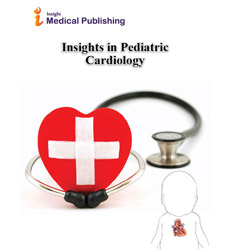Abstract
Infants with acute pulmonary hypertensive crisis: A case series
Introduction: Pulmonary hypertension (PH) refers to an abnormal elevation of blood pressure in the pulmonary vascular circulation, and has multiple etiologies. The condition is potentially life threatening and can have varied presentations. We present our experience with 3 infants who were admitted in our tertiary level PICU over a span of 3 months.
Case description: Three infants presented to us in early infancy with severe PH. All 3 were exclusively breast-fed young infants with normal birth and family histories, and came in respiratory and circulatory failure with severe metabolic acidosis. An observation made retrospectively after the management of the first case led to the prompt diagnosis of the succeeding 2 cases. In view of severe metabolic acidosis in the first infant, as part of workup and management of inborn errors of metabolism, Thiamine was added to the treatment along with mitochondrial cocktail therapy. Reversal of metabolic acidosis and pulmonary hypertension happened over the next 48 hours. All other etiological workup came normal. And retrospectively the possibility of Thiamine deficiency as the cause of PH was thought of. In the other 2 patients, thiamine levels were sent before adding vitamin supplementation, and early intervention reduced the morbidity and hospital stay.
Discussion and Implications: Before labelling any PH as idiopathic, it is important and life-saving to rule out Thiamine deficiency as a possible etiology. Thiamine is an integral component of cellular metabolism. And it has been found that it can cause severe pulmonary hypertension in exclusively breast-fed infants. It can be easily reversible with the simple intervention of adding Thiamine supplementation. Awareness of this condition is important for early recognition and prevention of mortality.
Author(s):
Suryakanthi C., Kumar PP., Rizwan A. and Satyanarayana Reddy B.
Abstract | PDF
Share this

Google scholar citation report
Citations : 5
Insights in Pediatric Cardiology received 5 citations as per google scholar report
Insights in Pediatric Cardiology peer review process verified at publons
Abstracted/Indexed in
- Google Scholar
- Secret Search Engine Labs
Open Access Journals
- Aquaculture & Veterinary Science
- Chemistry & Chemical Sciences
- Clinical Sciences
- Engineering
- General Science
- Genetics & Molecular Biology
- Health Care & Nursing
- Immunology & Microbiology
- Materials Science
- Mathematics & Physics
- Medical Sciences
- Neurology & Psychiatry
- Oncology & Cancer Science
- Pharmaceutical Sciences

